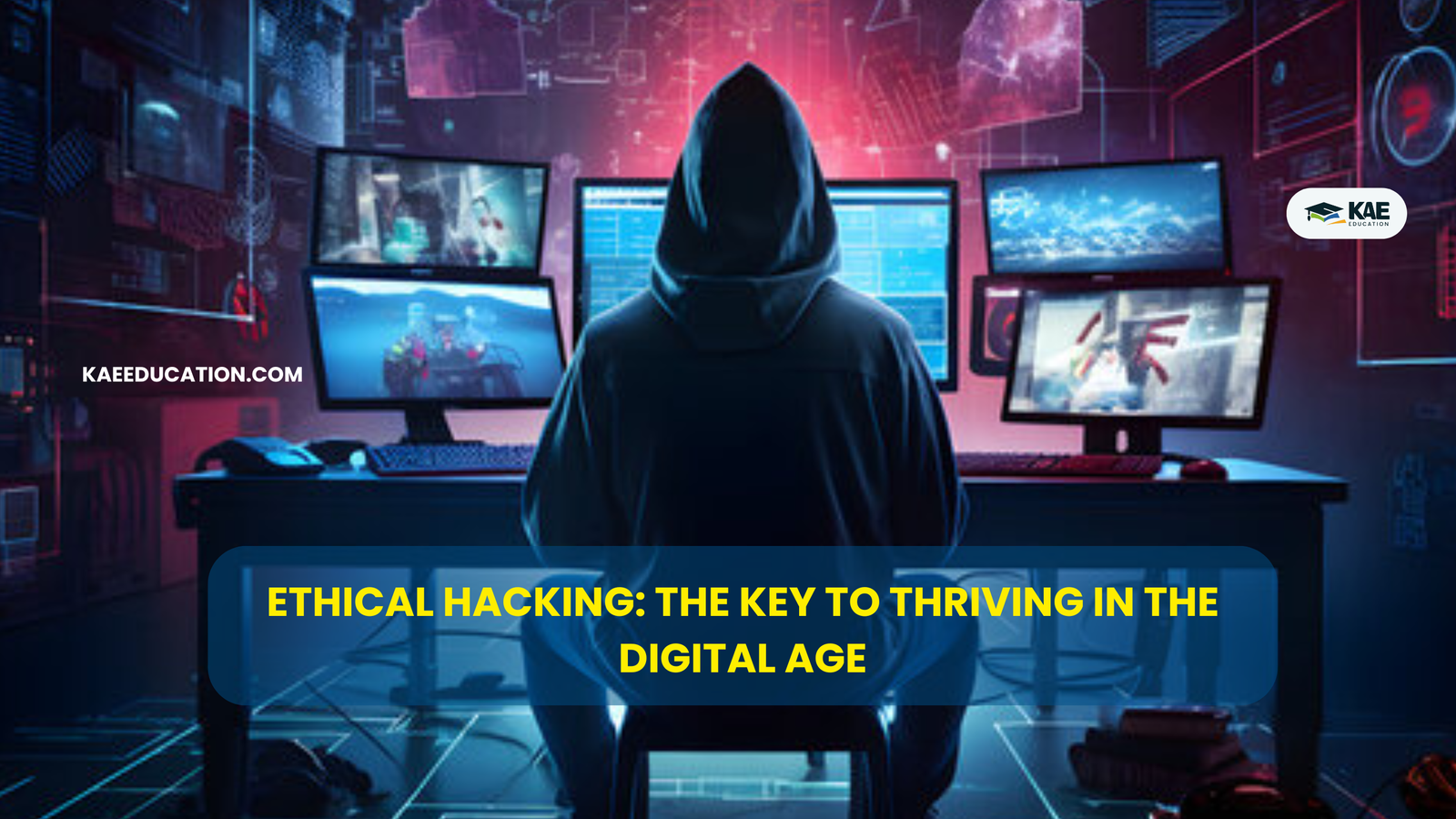Ethical Hacking: The Key to Thriving in the Digital Age
The rapid digitization of Businesses and personal lives has ushered in an era of unparalleled convenience and connectivity. However, it has also opened the door to increased cyber threats, data breaches, and privacy concerns. In this dynamic environment, Ethical hacking has emerged as a critical skill to safeguard the digital realm. Professionals and Businesses alike are recognizing its value, making White-hat hacking a thriving career choice for 2024 and beyond.
What is Ethical Hacking?
Ethical hacking refers to the practice of legally probing computer systems, networks, and applications to identify vulnerabilities and secure them against potential threats. Often referred to as “white-hat hackers,” Ethical hackers employ their expertise to fortify Cybersecurity defenses and thwart malevolent assaults.
Key Objectives of Ethical Hacking
(1) Identifying Vulnerabilities: Spot weak points in a system before attackers exploit them.
(2) Enhancing Security: Implement robust measures to fortify digital assets.
(3) Protecting Data: Ensure sensitive information remains secure.
(4) Compliance: Help organizations meet legal and Industry security standards.
The Significance of Ethical Hacking in the Digital Era
(1) Rising Cyber Threats: With cyberattacks growing in complexity, organizations need Ethical hackers to stay one step ahead.
(2) Protecting Sensitive Data: From Financial Institutions to Healthcare, Ethical hacking helps secure critical data.
(3) Regulatory Compliance: Governments and Industries are implementing strict Cybersecurity laws, increasing the demand for Ethical hackers.
(4) Emerging Technologies: The rise of AI, IoT, and blockchain introduces new security challenges that Ethical hackers are equipped to address.
The Future of Ethical Hacking (2024-2025)
The demand for White-hat hacking is projected to grow exponentially in the coming years due to:
(1) Increased Digitalization: As Businesses expand their digital footprint, Cybersecurity needs will intensify.
(2) Shortage of Skilled Professionals: The Cybersecurity talent gap presents abundant opportunities for Ethical hackers.
(3) Lucrative Salaries: Ethical hackers command competitive pay, with entry-level salaries averaging $70,000–$100,000 annually.
(4) Global Need: Every sector, from Government to startups, requires Cybersecurity expertise.

Emerging Trends in White-hat hacking
(1) AI-Powered Threat Detection: Ethical hackers will use AI to predict and counter cyber threats.
(2) Specialized Domains: Areas like cloud security, IoT protection, and mobile app security will see significant growth.
(3) Ethical Hacking Certifications: Certifications like CEH (Certified Ethical Hacker) and OSCP (Offensive Security Certified Professional) will gain more importance.
How to Build a Career in Ethical Hacking
(1) Learn the Basics: Develop strong foundations in networking, programming, and Cybersecurity.
(2) Get Certified: Pursue certifications like CEH, OSCP, or CISSP to validate your skills.
(3) Practical Experience: Participate in bug bounty programs, internships, and Cybersecurity competitions.
(4) Stay Updated: Keep up with the latest trends and tools in ethical hacking.
(5) Build a Portfolio: Showcase your expertise through successful projects and case studies.
Benefits of White-hat hacking
(1) Proactive Security: Identify threats before they cause damage.
(2) Professional Growth: A rewarding career path with constant learning opportunities.
(3) High Demand: Consistently growing need for skilled Ethical hackers.
(4) Contributing to Society: Play a pivotal role in safeguarding digital spaces.
Skills Needed for White-hat hacking
(1) Proficiency in programming languages (Python, Java, etc.)
(2) Deep understanding of operating systems like Linux and Windows
(3) Knowledge of network security and cryptography
(4) knowledge of Ethical hacking tools such as Wireshark, Nmap, and Metasploit
Conclusion
White-hat hacking is not just a profession but a necessity in today’s digital-first world. As cyber threats evolve, so does the importance of skilled Ethical hackers. Whether you’re a student exploring career options or a professional seeking to enhance your skills, Ethical hacking offers endless opportunities. With its growing demand and critical role in Cybersecurity, White-hat hacking is truly the key to thriving in the digital age.
FAQs About Ethical Hacking
An Ethical hacker identifies security weaknesses in systems and applications to help organizations mitigate risks and prevent data breaches.
Yes, White-hat hacking is entirely legal when performed with proper authorization and under the guidance of an organization or as part of compliance.
CISSP (Certified Information Systems Security Professional), OSCP (Offensive Security Certified Professional), and CEH (Certified Ethical Hacker) are popular certificates.
Absolutely! Students with an interest in cybersecurity can start by learning programming and networking basics, followed by certifications and practical experience.
Industries like Finance, Healthcare, Government, Technology, and E-commerce rely heavily on Ethical hackers to protect their systems.
Ethical hacking is performed with permission to improve security, while regular hacking involves unauthorized access and malicious intent.

